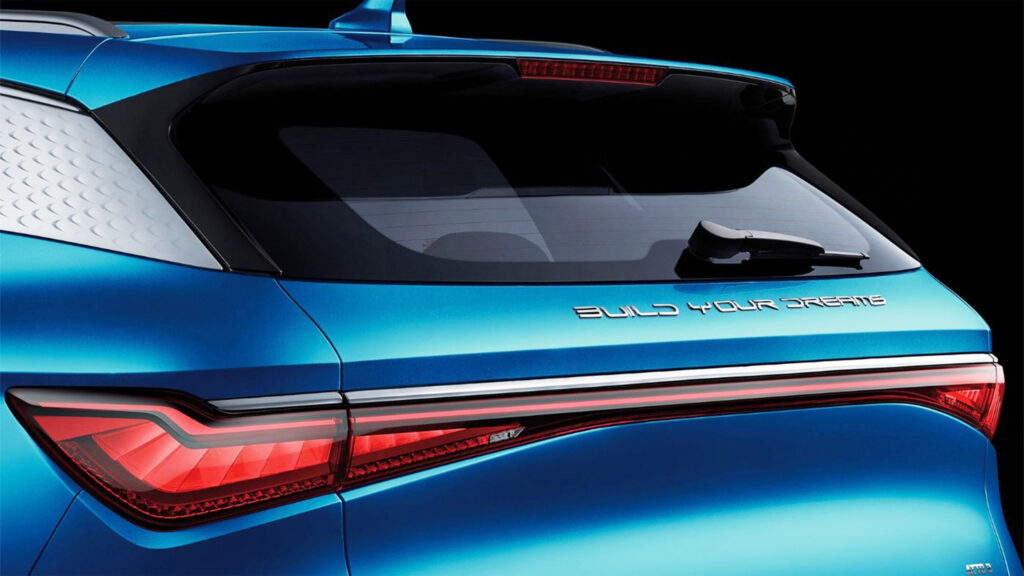Chevy Badge More Than Doubles This Chinese EVs Price

- The Chevrolet Spark EUV is a small fully electric SUV for South America.
- The model is essentially a rebadged version of China’s Baojun Yep Plus.
- It shares the same specifications, but has a much higher starting price.
Update: Chevrolet has opened pre-sales for the Spark EUV in Brazil, pricing the electric vehicle at R$159,990 (approximately $28,600). That’s more than twice the cost of the identical Baojun Yep Plus sold in China. The original story continues below.
Chevrolet has found a clever (read: cost-effective) way to make the most of its SAIC-GM-Wuling joint venture by rebadging one of China’s most charming EVs, the Baojun Yep Plus. This fully electric urban SUV made an unexpected debut during a special event celebrating Chevrolet’s 100th anniversary in the Brazilian market.
The new model, set to be sold in Brazil as the Chevrolet Spark EUV, is essentially a Baojun Yep Plus with a Chevy badge stuck on the grille—no other major changes to speak of. Despite sharing a name and compact proportions, the Spark EUV has absolutely nothing in common with the Spark EV, Chevrolet’s short-lived electric hatchback sold in select states in the US from 2013 to 2017 before being phased out for the Bolt.
More: 12-Year Old Chevrolet Trailblazer Receives Another Facelift In Brazil
Inside, the Spark EUV borrows the modern digital cockpit of the Baojun Yep Plus, comprising a 8.8-inch digital instrument cluster and a free-standing 12.8-inch touchscreen. It is also expected to inherit the advanced driver assistance systems (ADAS) of the Chinese twin, developed by none other than drone-maker DJI.
The EV measures 3,996 mm (157.3 inches) long with a 2,560 mm (100.8 inches) wheelbase, making it Chevrolet’s smallest offering. While the Baojun lineup includes a five-door version, a three-door variant, and even a pickup concept, it’s unclear if GM plans to bring any of these alternative body styles to the Brazilian market.
Predictably, the Spark EUV borrows its electric powertrain directly from the Chinese-spec twin. A single rear-mounted electric motor generates 101 hp (75 kW / 102 PS) and 180 Nm (133 lb-ft) of torque. The 42 kWh battery pack offers a respectable 401 km (249 miles) of range on China’s CLTC cycle. The Baojun Yep Plus is also available with 32 kWh and 54 kWh battery options, but we don’t know if those will be eventually offered in the Chevy.
More: China-Made 2024 Chevrolet Aveo Unveiled In Mexico
One would think that the most compelling aspect of this tiny off-roader is its affordability. Still, the Chevrolet Spark EUV starts at R$159,990 ($28,600) in Brazil, which is more than double the ¥93,800 ($13,000) price of the identical Baojun model. The little Chevy is also more expensive than the rival BYD Dolphin Mini (Seagull EV) which starts at R$115,800 ($20,700) in the same market.
Deliveries of the Chevrolet Spark EUV are expected to begin this summer. The model will soon joined by the larger Chevrolet Captiva EV which is based on the Wuling Starlight S from China.






